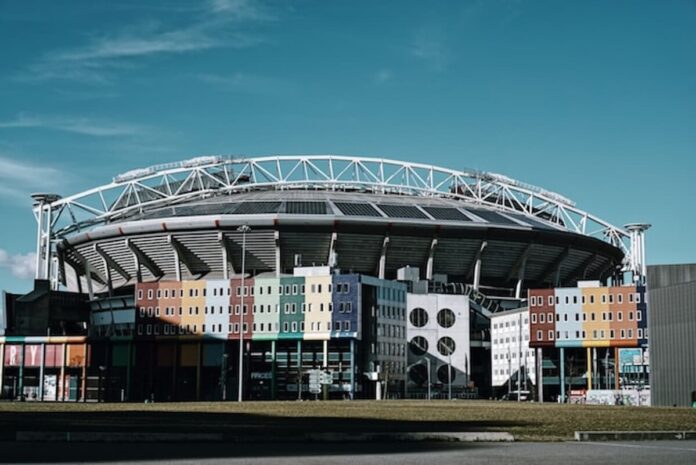The Netherlands Gaming Authority, Kansspelautoriteit (KSA), has reported that its ban on gambling sponsorship in sports has been implemented successfully.
The ban came into effect on July 1 and prohibits all gambling sponsorship in sports, including shirt sponsors, advertising in public places, and any promotional materials.
A statement on the KSA website noted: “After the ban took effect on July 1st, virtually all public displays disappeared.”
In July 2023, the government approved a ban on gambling advertising in sports, giving organizations a two-year transition period to end existing contracts.
KSA Ready to Clamp Down on Offenders
Some minor violations of the new rules were observed, such as the sale of merchandise with gambling company logos in club shops.
Violators were sent warning letters, and if there are repeat occurrences, the KSA stated it may issue fines.
KSA Chairman Michel Groothuizen commented that the regulator will take a strong stance against any violators of new regulations around gambling sponsorship.
He stated, “In other countries with similar bans, we’ve seen operators attempt to creatively circumvent the law. That will not be tolerated in the Netherlands.”
The regulator issued a fine to BetMGM last month over using FC Barcelona star Lamine Yamal in its promotional materials.
The 17-year-old is under the legal gambling age of 18 in the Netherlands, and rules prohibit companies from using any role models that could be seen to appeal to minors.
Groothuizen emphasized that the new regulations are aimed at protecting young people, among others, commenting, “This legislation was enacted to protect young adults and other vulnerable groups by preventing their exposure to gambling advertisements, regardless of the source. We will be vigilant in upholding that protection.”
Tax Increase Driving Out Operators
In addition to the ban on gambling advertising in sports, the Netherlands has also raised taxes on gambling companies.
This year, the Dutch government’s Ministry of Finance increased the tax on gambling from 30.5% to 34.2% and it will be raised again to 37.8% in 2026.
In response to the increases, LiveScore Bet withdrew operations in the country. CEO Sam Sadi commented, “Unfortunately, the planned tax increase means that this market is no longer viable commercially.”
The government projects the tax increase will generate over €200 million ($233 million) annually from 2026 onwards.
However, critics argue it could lead to more companies following LiveScore Bet and withdrawing from the market.
Ban On Sports Sponsorships: The Negative Impact
The stricter rules around advertising in sports could also greatly hinder betting companies and impact sports teams’ revenues.
Betting companies frequently rely on promoting their brands through front-of-shirt sponsors on sports teams, such as soccer clubs.
In total, 33 out of 34 professional soccer clubs in the Netherlands had at least some form of gambling sponsorship in the previous two years.
Eredivisie CV, the organization that represents the interests of the clubs at the highest level in the Netherlands, estimated that clubs will lose an average of 40 million euros ($41.1 million) directly.
In addition, approximately 30 million euros ($30.8 million) will be lost indirectly due to the limitations on gambling advertising with media partners.
In response to the change, the Eredivisie, the Netherlands’ top soccer league, has partnered with the state lottery, which is exempt from the ban on gambling sponsors.
Other Countries Banning Betting Sponsors
Other countries have made similar moves to limit gambling sponsorship in sports.
The Premier League in England voted in favor of a ban on front-of-shirt sponsors by betting platforms, which will come into force from the 2026-2027 season.
Additionally, soccer clubs in Brazil have opposed plans to implement a ban on betting sponsorship, citing the grave financial consequences it would have on the teams.
The clubs also referenced similar moves in Spain and Italy that have harmed the leagues. The Italian Senate is working on lifting the ban in the country.
Meanwhile, a Supreme Court ruling in Spain last year also reversed some restrictions about gambling promotions, although a ban on sports clubs being sponsored by betting companies is still in place.
The KSA’s statement shows the regulator is optimistic that its ban is having a positive impact.
Still, the financial impact on sports teams may have implications for future economic stability in Dutch soccer.











